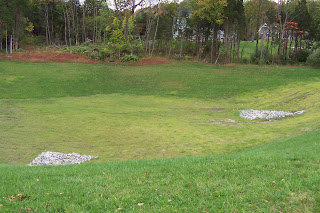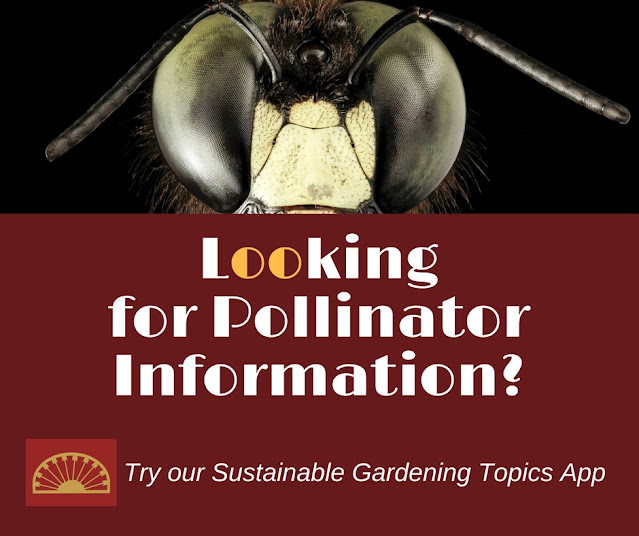Rethinking Depression: Tools to Cope With the Ups and Downs of Gardening

Gardeners can tick off a litany of potential reasons to get depressed: A copse of 60-year-old trees destroyed in an ice storm; house and garden vacuumed off the face of the earth by tornado; flooding by hurricane; seasonal drought; bee colony collapse disorder; whole forests decimated by alien insects; extensive flowerbeds destroyed by mold, fungi, or white-tailed deer; an entire season’s tomato harvest infected with blossom end-rot. Then there are the more personal reasons that interfere with our ability to garden: Arthritis, caring for infirm relatives; chronic disease; job loss; increased work demands; kid’s sports practice; volunteer commitments, etc.
Any of these events can generate frustration, disappointment, and sadness -- justifiably so. But there’s no need to let ourselves slip from sadness into depression. Dr. Eric Maisel’s new book Rethinking Depression offers an arsenal of tools to cope with the ups and downs of daily life, so that we will have enough energy and enthusiasm left to get on with our gardening.
Today I’m interviewing my writing coach, Dr. Maisel, a licensed psychologist who works with creative people.
Lois: Eric, I see that your new book, Rethinking Depression, revisits your Ten Zen Seconds concept, which I have personally found very useful. Can you give gardeners a quick example of how they might turn to this combination of deep breathing and meaning-oriented thought to give themselves permission to garden even when the world seems to be crumbling around their ears?
Eric: The idea is to use a deep breath as a container for a thought and to marry the benefits of deep breathing with the benefits of right thinking. You think “half” a useful thought like “Time to garden!” on the inhale and the remaining half of the thought on the exhale. By using these breath-and-thought bundles (I call them incantations) you produce a simple technique that you can use to center yourself and motivate yourself. Here are a few meaning-oriented incantations that might serve you:
One is the incantation “I make my meaning.” The incantation “I make my meaning” alerts you to the fact that the psychological experience of meaning can arise spontaneously but that it can also be coaxed into existence by the choices you make and by the efforts you engage in; and especially by your value-based and principle-based efforts. You remind yourself of your ability to create meaning by breathing-and-thinking “I make my meaning.”
A second is the incantation “Meaning is a wellspring.” The incantation “meaning is a wellspring” announces that, since meaning is a psychological experience, there is an endless supply of it. For the non-believer, this never-ending source is the self. For the believer, this never-ending source is soul or spirit, a god or gods, Gaia or Universal Mind, or some other entity separate from the embodied self. However you arrive at your conclusion that meaning is available to you, you can remind yourself of your conclusion by breathing-and-thinking the incantation “meaning is a wellspring.”
Lois: Gardeners garden for a variety of reasons. It may constitute their work, as for professional landscape designers or installation contractors. They may want to grow their own food, in order to know where it’s been or what’s been sprayed on it. They may enjoy nurturing or collecting plants, reconnecting with Nature, or having the best-looking garden on the block. Can you suggest how folks with such a variety of motivations could approach negotiating each day? How they can avoid getting down on themselves on those days when the gardening they longed to do just doesn’t get done?
Eric: Regularity and routine are the watchwords for someone who wants to make daily meaning. You turn your gardening into a “practice,” in the sense that you “simply” attend to it each day. If you miss days, then you have the twin tasks of forgiving yourself and getting back on the horse as quickly as possible. Whatever reasons you have for gardening, if they are among your meaning-making activities then you want to announce that they matter to you and attend to them as if they matter to you.
Lois: Gardening is a very physical activity. By accident or age, gardeners can become disabled enough to have to rely on others to accomplish the “doing” for them. They may have to give up gardening altogether, when physical circumstances demand that they sell their home and their beloved garden and move into an apartment or assisted living facility. What advice do you have for gardeners who are faced with such a devastating loss?
Eric: We continue to make meaning by looking the facts of existence in the eye, including the facts of our own existence, and making the changes we need to make in order to continue making meaning. When Matisse could no longer paint, because of painful arthritis, he moved on to the cut-out collages that became as least as famous as his paintings. We do the next “right” thing – we have no choice but to take reality into account as we proceed with our meaning-making efforts.
Lois: Thanks Eric, I’m looking forward to your next book.
You can order any of Eric’s books, in print or Kindle here: http://ericmaisel.com/books/.

